Northeastern’s Bee Society helps rescue honeybee hive in Boston Public Garden
The rescue operation gives the wild hive a better chance of surviving the winter. On their own, “they wouldn’t have even made it to December,” says the president of the student-run beekeeping group.
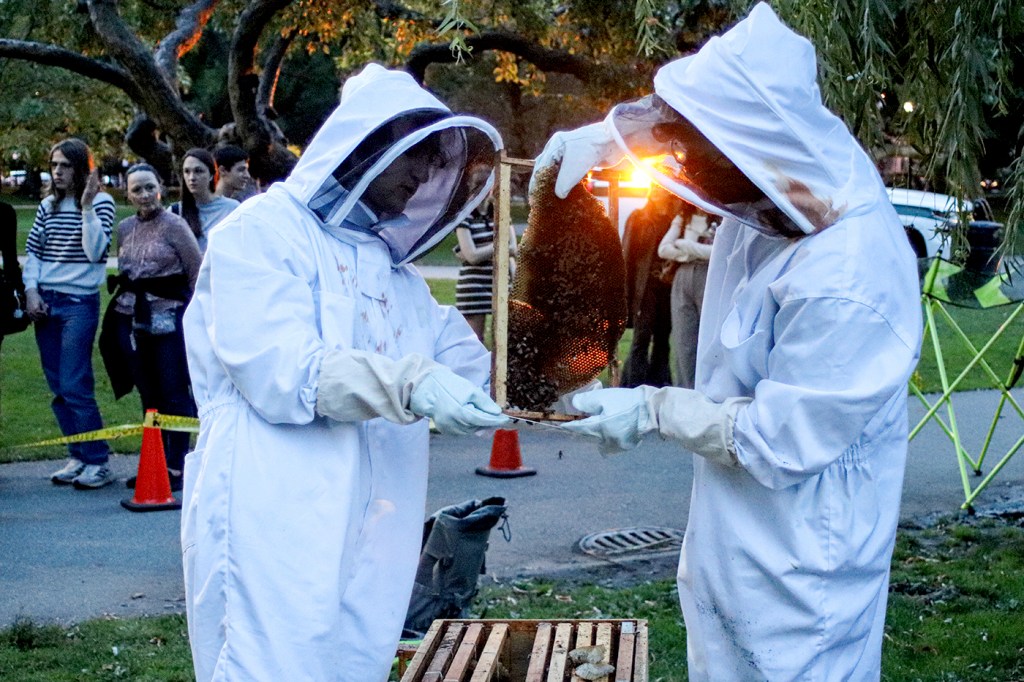
Connor Martin was in the middle of his biomaterials class at Northeastern University when he received an eyebrow-raising email. The subject line read “Urgent request. Please read,” and attached to the email were pictures of a fallen tree with a honey bee hive inside it.
For most students, this would be strange, but for Martin, president and founder of Northeastern’s Bee Society, it was a call to action.
The email from Stephen Schneider, Northeastern’s chief arborist, called for the Bee Society to do something it had never done before –– take the lead on a hive rescue operation –– in one of the most public venues in Boston: the Public Garden. The Bee Society stepped up, successfully rescuing the hive and its nearly 10,000 residents from the downed tree, relocating them to a new hive on Northeastern’s Boston campus.
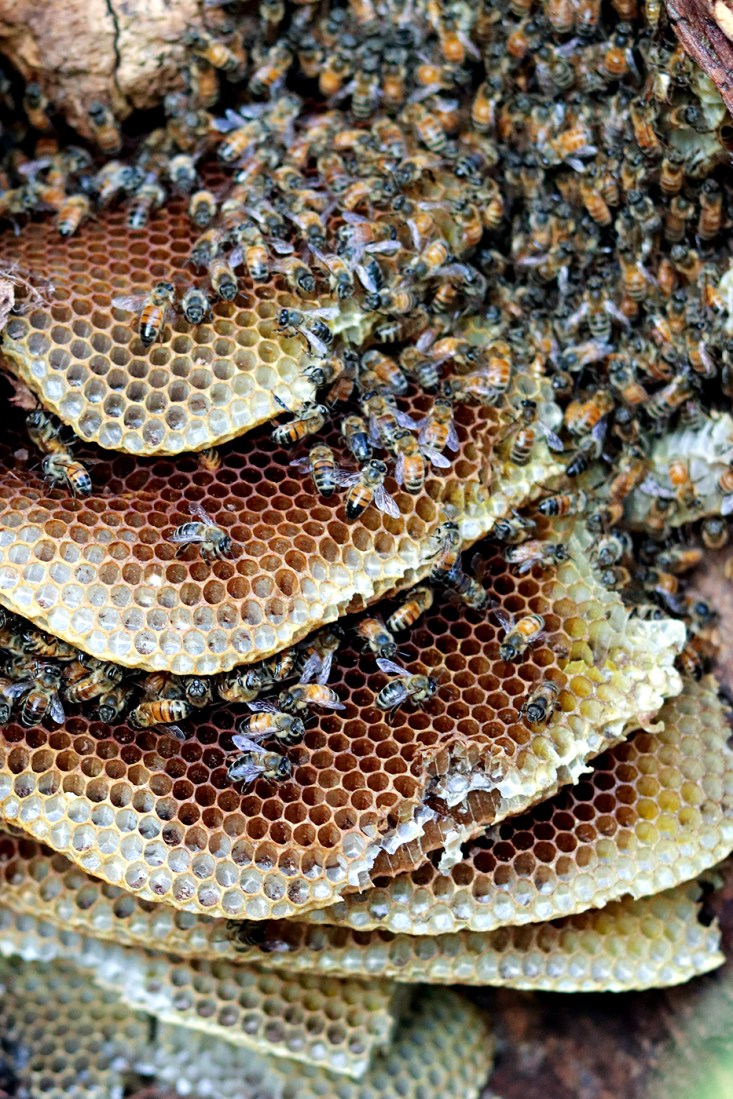
It’s a story with a happy ending but one that could only have happened with the hard work and expertise of students and veteran beekeepers.
“It was really an honor to have the opportunity to work with other people who care deeply about the environment and maintaining the ecosystem that exists in this city,” Martin says.
After hearing about the downed tree from an old contact of his from the Boston Park Rangers, Schneider says he immediately reached out to Martin, who has been keeping bees since he was 10.
“I sent it, and I kid you not in less than two minutes, Connor wrote back and said, ‘We’ve got this,’” Schneider says.
In the same email, Schneider contacted Noah Wilson, founder of Best Bees Co., a beehive management company, and a Northeastern graduate. Wilson offered to provide Martin with the equipment he would need for the rescue operation, including a wooden box with covers and frames to house the bees and their hive.
Martin quickly took off on his bike and grabbed the equipment at Best Bees’ Roxbury headquarters. With a wagon loaded with beekeeping equipment, he walked a few miles to the Public Garden where he met up with Bee Society executive board members Gillian McMurtry and Parker Sutton and freshman Bee Society member and lifelong beekeeper Jessi Wood.
Performed in partnership with the Boston park rangers, Martin says the rescue itself was done entirely by students. He calls it “a difficult operation.” With hives that are managed by people, like the five on Northeastern’s campus, it’s easy to extract bees and honeycomb. This hive was located in the hollowed out branch of a willow, a tree known for its winding, crooked branches.
“I’ve got the suit on and I’m trying to reach up and grab bees that are up in this crevice, and we sort of massaged the combs out,” Martin says. “We got most of the bees that first day, and then I went back the second day for the stragglers, because we had left some bees behind, and I actually found the queen that second day.”
A rescue operation like this also comes with other challenges. Wild bees might have diseases or pests, like varroa, a common kind of mite, that managed hives, which are treated with medicine and chemicals, don’t have. Then, there are the bees themselves, which aren’t exactly happy that someone is removing them from their hive.
“Obviously, bees will react in a defensive way when you get into their hive, which is why we’ll use tools like the smoker and we wear veils,” Martin says. “I was worried when I was approaching this hive that they would react defensively towards me. It ended up not being true –– these were very gentle bees –– so that was good.”
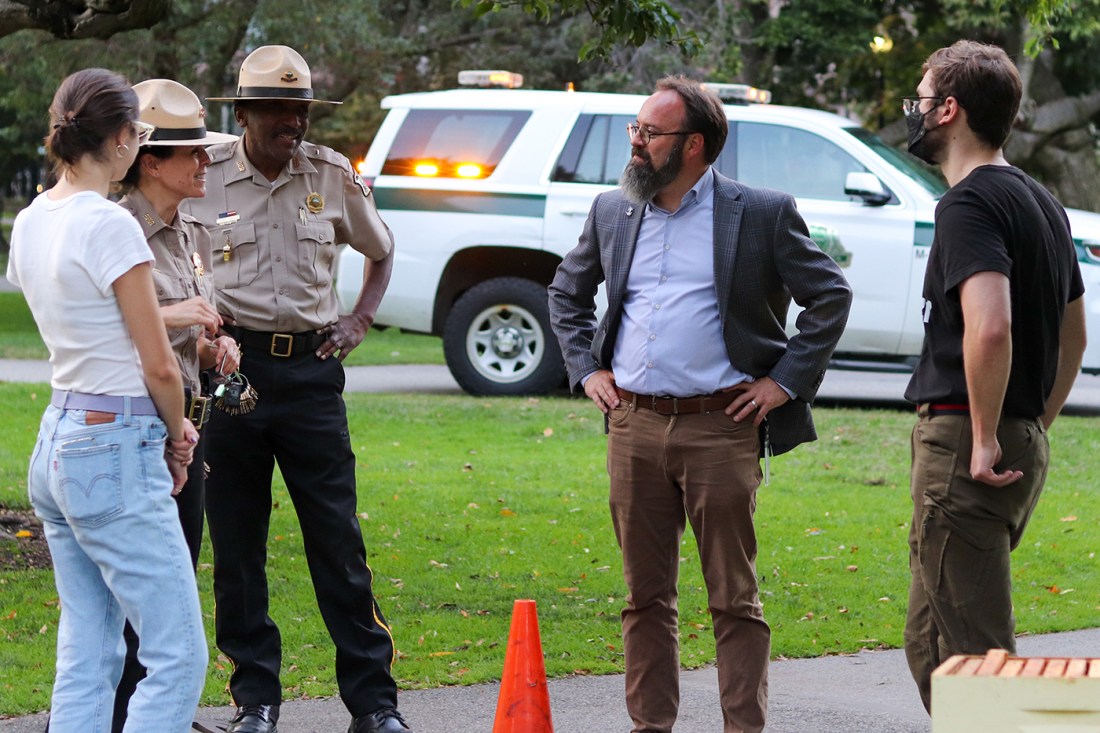
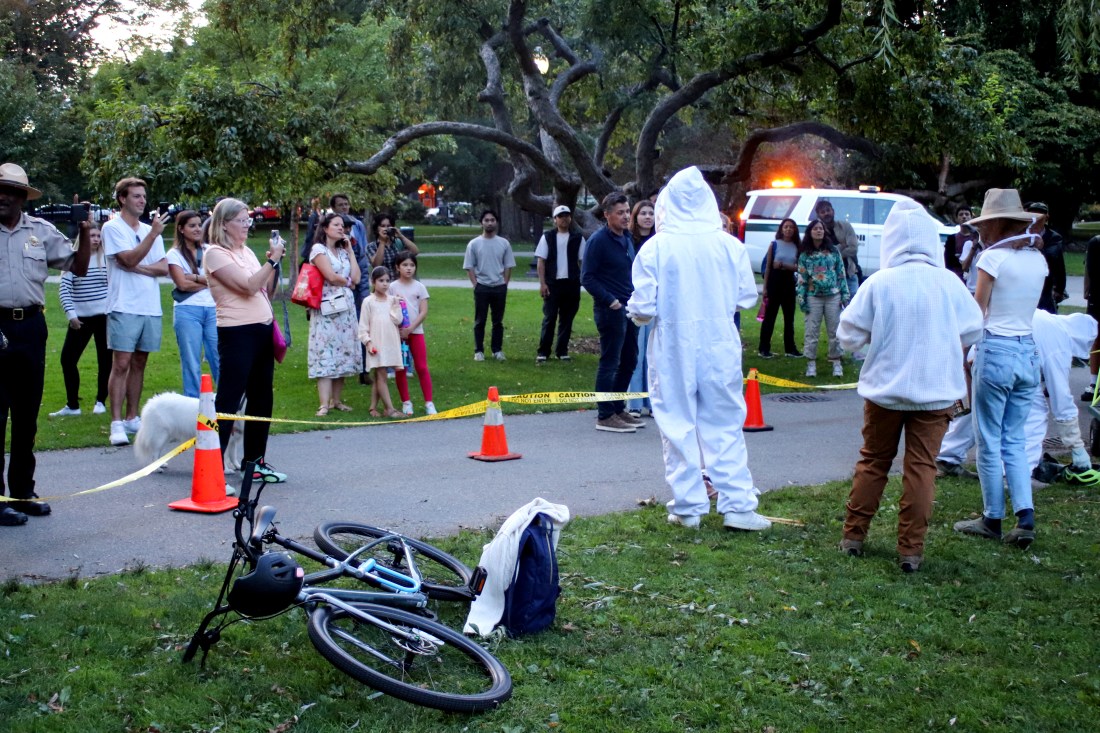
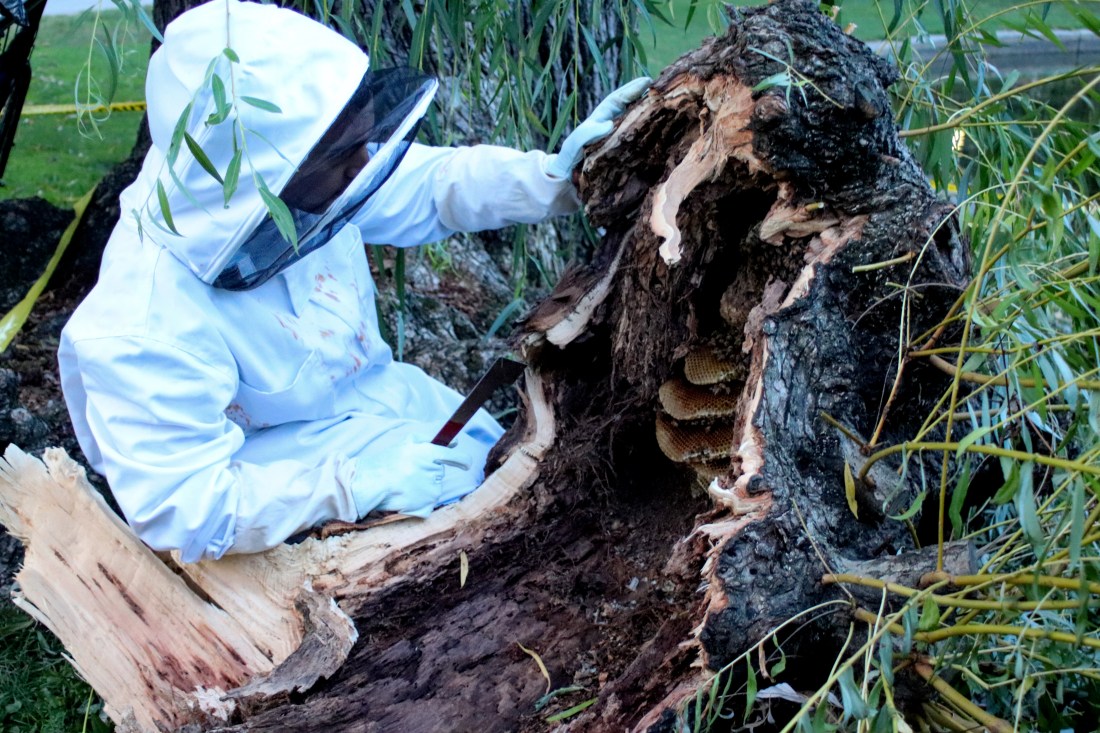
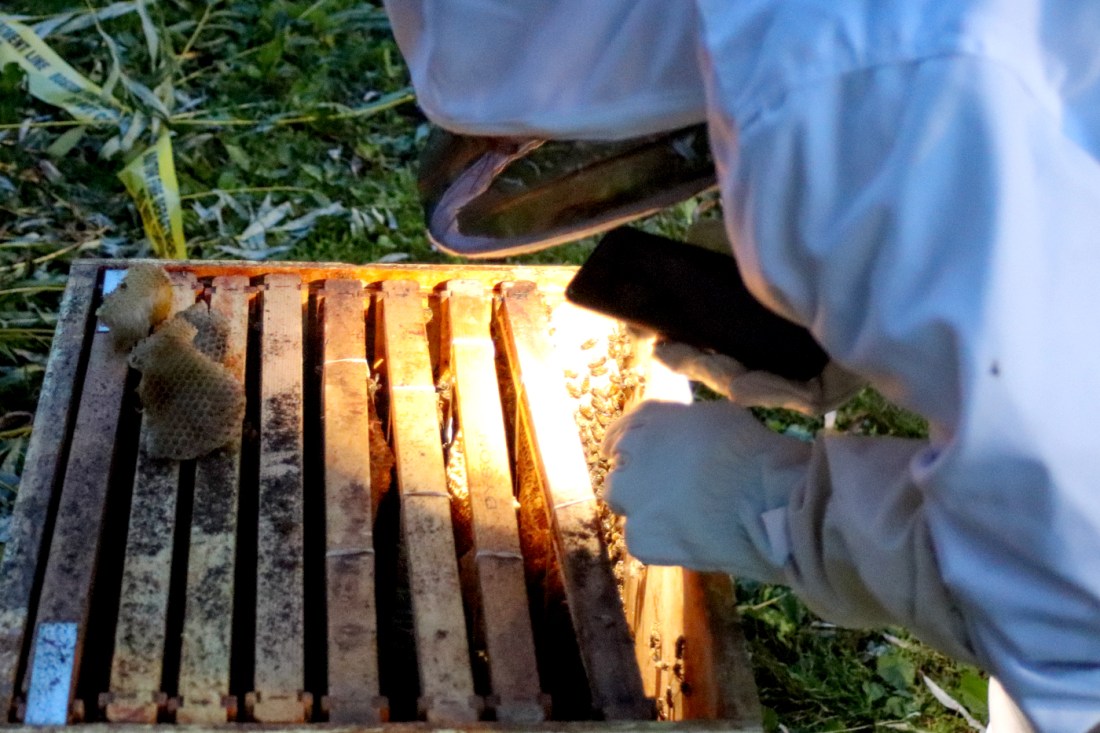
The Bee Society members didn’t just rescue bees; they also spread awareness about the valuable role bees play even in urban ecosystems. A group of high schoolers walking through the Public Garden on a field trip started watching from the sidelines at one point. Martin, McMurtry, Sutton and Wood used it as an educational opportunity, answering questions and even passing around empty honeycombs.
“Part of the university’s mission in terms of supporting our students is … to step back and let them do their thing and watch in awe, and then look for opportunities where we can offer support,” Schneider says.
Martin says the operation could not have been better timed. The relatively small and young hive was approaching what could be a brutal winter. Now, they’ll receive food, medicine and treatment that could give them a fighting chance.
“This was basically a starting colony that was about to go into the winter, so it’s actually really good that we found them because they wouldn’t have even made it to December, let alone May,” Martin says. “It’s going to be tough, but we’ll do everything we can to give the bees the best shot they can have.”






